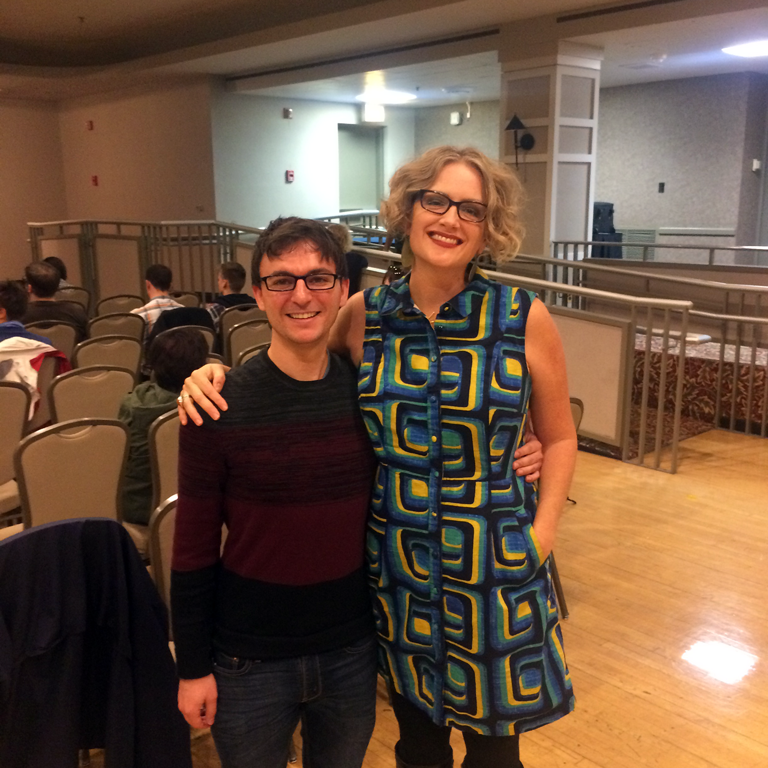Jacob Boss, an IU Ph.D. student in religious studies, admits that he was predisposed not to agree with the premise of author Jane Ward’s controversial book. After reading it, however, Boss found himself not only convinced by Ward’s evidence, but inviting her to IU Bloomington’s campus to discuss her book, Not Gay.
“I was surprised to recognize how violently I reacted against men who identified a certain way and who acted a certain way, and how that violent impulse and that reaction to say, ‘No, you’re gay,’ meaning you’re holding your political solidarity away from us,” explained Boss, a member of the graduate-student organization Grad Queers. “Her work has done a lot to ameliorate that resentment in my heart, that anger and resentment. I see things in a new light now, thanks to her work, which I think all scholars hope for. It was a very affecting work for the members of Grad Queers who read it.”
Not Gay focuses on how some straight, white men have engaged in homosexual sex, yet don’t self-identify as gay. Ward, an associate professor of gender and sexuality studies at the University of California-Riverside with a background in sociology, uses archival material to discuss sexual identity.
“She manages to pack a lot of content into a short book. The main argument the book is organized around has to do with the way sexuality, gender, and race control identity in this culture, and how dramatically that’s changed over the past 120, 130 years—just the shocking amount of change that’s gone on in who we’re allowed to be and who people see us as,” said Boss.
“There’s a long history of trying to figure out what it means to be straight while having homosexual relationships. One of the most provocative parts of the book for me is the discussion of the Gay Right Movement, and the way in which the idea of the closet and the imperative that filled the emerging gay rights culture—that everyone’s in the closet and everyone needs to come out of the closet—and surprisingly, it interacted with conservative communities of faith that adopted that message. She has some striking examples of people who engaged in homosexual or gay behavior who are not seen as gay in their communities.”


